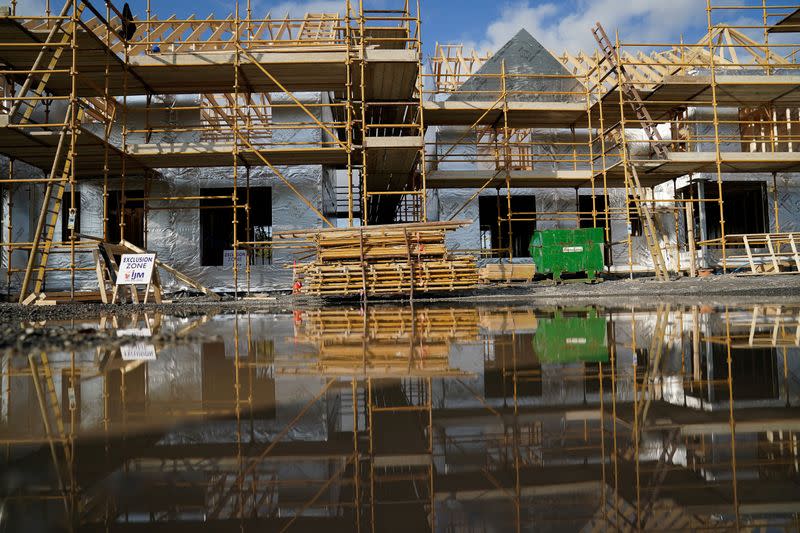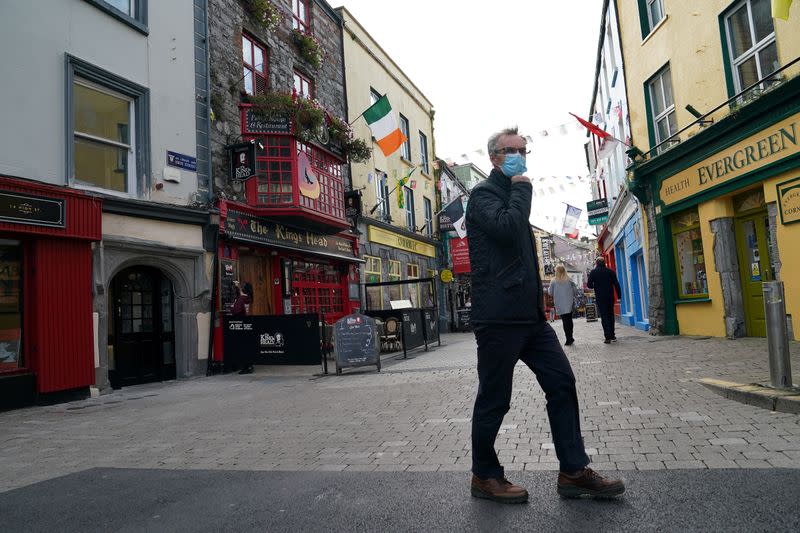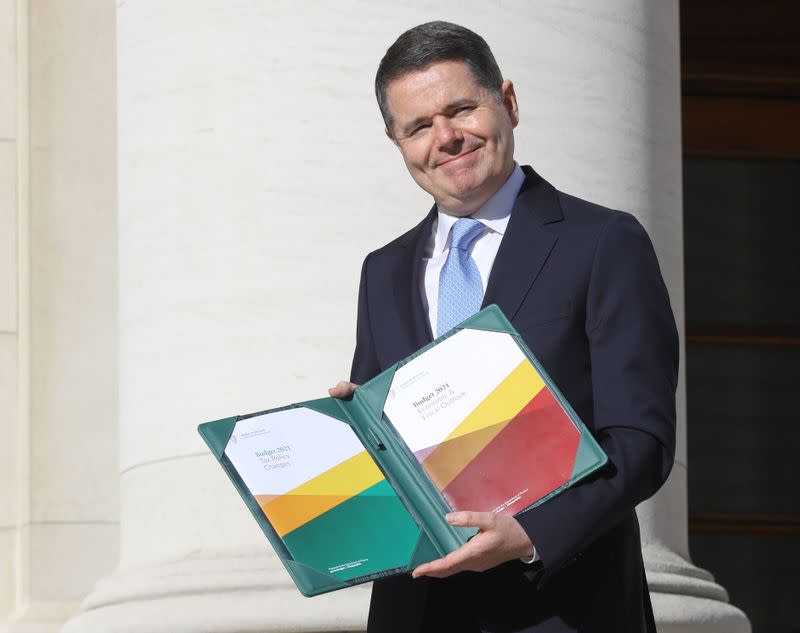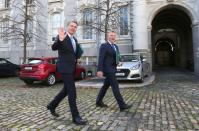Ireland cushions tough COVID-19 curbs with biggest budget package
By Padraic Halpin and Conor Humphries
DUBLIN (Reuters) - Ireland's government offered more support on Tuesday to those hit hardest by some of Europe's toughest COVID-19 restrictions in a budget stimulus package that it said was unprecedented in the history of the state.
Like other countries, Ireland has spent aggressively to contain the pandemic crisis with billions of euros in emergency jobless benefits, wage subsidies and business loan guarantees, turning last year's budget surplus into a forecast deficit of 6.1% of gross domestic product (GDP) for 2020.
The measures also sought to prepare for the prospect of a disruption of trade with neighbouring Britain if progress is not made rapidly on a post-Brexit trade deal.
With the damage to the state finances not as bad as feared, Ireland will spend big again next year, setting aside 3.4 billion euros in a Brexit and COVID-19 recovery fund and cutting the VAT rate for the hospitality sector to 9% from 13.5%.
"We have faced numerous difficulties since independence (a century ago), but never one like COVID-19," Finance Minister Paschal Donohoe told lawmakers.
"Our message is clear. Yes, the test we face is daunting, further demanding choices await. And yes, we will prevail."
The deficit is set to fall to 5.7% of GDP next year and Donohoe said the government must manage and reduce its borrowing levels over the coming years to return to a balanced position.
While Ireland's central bank forecasts that GDP may fall by as little as 0.4% this year, the relatively robust performance is being driven by the less affected export sector and masks an uneven recovery that has left unemployment stuck at around 15%.
IN THE GAME
A second national lockdown - proposed by health chiefs last week but rejected by the government - would reduce GDP by 1 percentage point this year and almost 4 points next year, delaying any recovery until 2022, the finance ministry said.
The government instead tightened curbs last week - banning indoor service in pubs and restaurant - and announced in the budget that impacted firms can get much larger grants of up to 5,000 euros per week if their sales are severely damaged.
Donohoe said the wage subsidy scheme due to end in April 2021 would run to the end of next year with the help of EU funding. Ministers also used the record budget package to fund longer term housing, climate and health projects, key issues during February's pre-pandemic general election.
Business groups broadly welcomed the measures with the head of the Irish SME Association saying they would "keep a lot of firms in the game", although groups representing publicans said the new grants would need to be extended beyond next March.
(Writing by Padraic Halpin; Editing by Gareth Jones and Giles Elgood)

 Yahoo Finance
Yahoo Finance 









